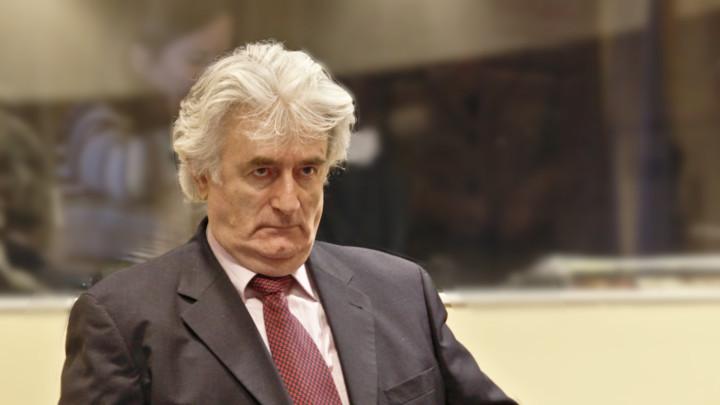Radovan Karadžić appeal hearing scheduled for 23 and 24 April 2018 – Accreditation procedure now open

The appeal hearing in the case of Radovan Karadžić before the International Residual Mechanism for Criminal Tribunals (MICT or Mechanism) will take place on Monday, 23 April 2018, and Tuesday, 24 April 2018, in Courtroom I at the Mechanism’s premises in The Hague, in accordance with the scheduling order issued by the Mechanism’s Appeals Chamber.
The hearing will begin with an introductory statement by Judge Theodor Meron, Presiding Judge in the case, followed by oral arguments on the appeals presented by Radovan Karadžić and the Prosecution. The hearing is scheduled to conclude on Tuesday, 24 April at 12:55.
All media representatives wishing to attend the appeal hearing in the Karadžić case must submit an accreditation request to mict-press@un.org. Accreditation requests must be submitted by Thursday, 19 April 2018, at 12:00. The accredited media will be notified of their accreditation status on the Mechanism’s website by close of business on Thursday, 19 April 2018.
Accreditation requests should include the full name of the media outlet, journalist(s), cameramen and other technicians as well as passport or ID number.
Other members of the public wishing to attend the appeal hearing should send an email to mict-external-relations@un.org for more information on the procedure and space available.
Due to limited resource capacity, accreditation requests for the media and the general public will be processed on a first-come-first-served basis. Furthermore, there will be limited capacity to support the media representatives’ requests on the day.
Background
Trial Chamber III of the International Criminal Tribunal for the former Yugoslavia (ICTY), in its Judgement rendered on 24 March 2016, convicted Radovan Karadžić, former President of Republika Srpska and Supreme Commander of its armed forces, of genocide, crimes against humanity and violations of the laws or customs of war committed by Serb forces during the armed conflict in Bosnia and Herzegovina (BiH), from 1992 until 1995. He was sentenced to 40 years’ imprisonment.
Karadžić was convicted of genocide in the area of Srebrenica in 1995, of persecution, extermination, murder, deportation, inhumane acts (forcible transfer), terror, unlawful attacks on civilians and hostage-taking. He was acquitted of the charge of genocide in other municipalities in BiH in 1992.
The Chamber found that Karadžić committed these crimes through his participation in four joint criminal enterprises (JCE).
The overarching JCE, which existed between October 1991 and November 1995, included a common plan to permanently remove Bosnian Muslims and Bosnian Croats from Bosnian Serb-claimed territory through the commission of crimes in municipalities throughout BiH.
The trial commenced on 26 October 2009 and lasted a total of 499 trial days during which some 11,500 exhibits were admitted. The Trial Chamber took the testimony of a total of 586 witnesses of which 337 witnesses were called by the Prosecution, 248 by the Defence and 1 by the Trial Chamber.
In accordance with Article 2 of the Mechanism’s Transitional Arrangements, on 22 July 2016, both parties filed their notices of appeal against the ICTY Trial Judgement before the Mechanism. On 5 December 2016, the parties filed their respective appeal briefs and the briefing concluded on 6 April 2017.
The Mechanism was established on 22 December 2010 by the United Nations Security Council to carry out a number of essential functions of the International Criminal Tribunal for Rwanda and the ICTY after the completion of their respective mandates, including completion of a limited number of cases which are inherited from the work of these two tribunals.